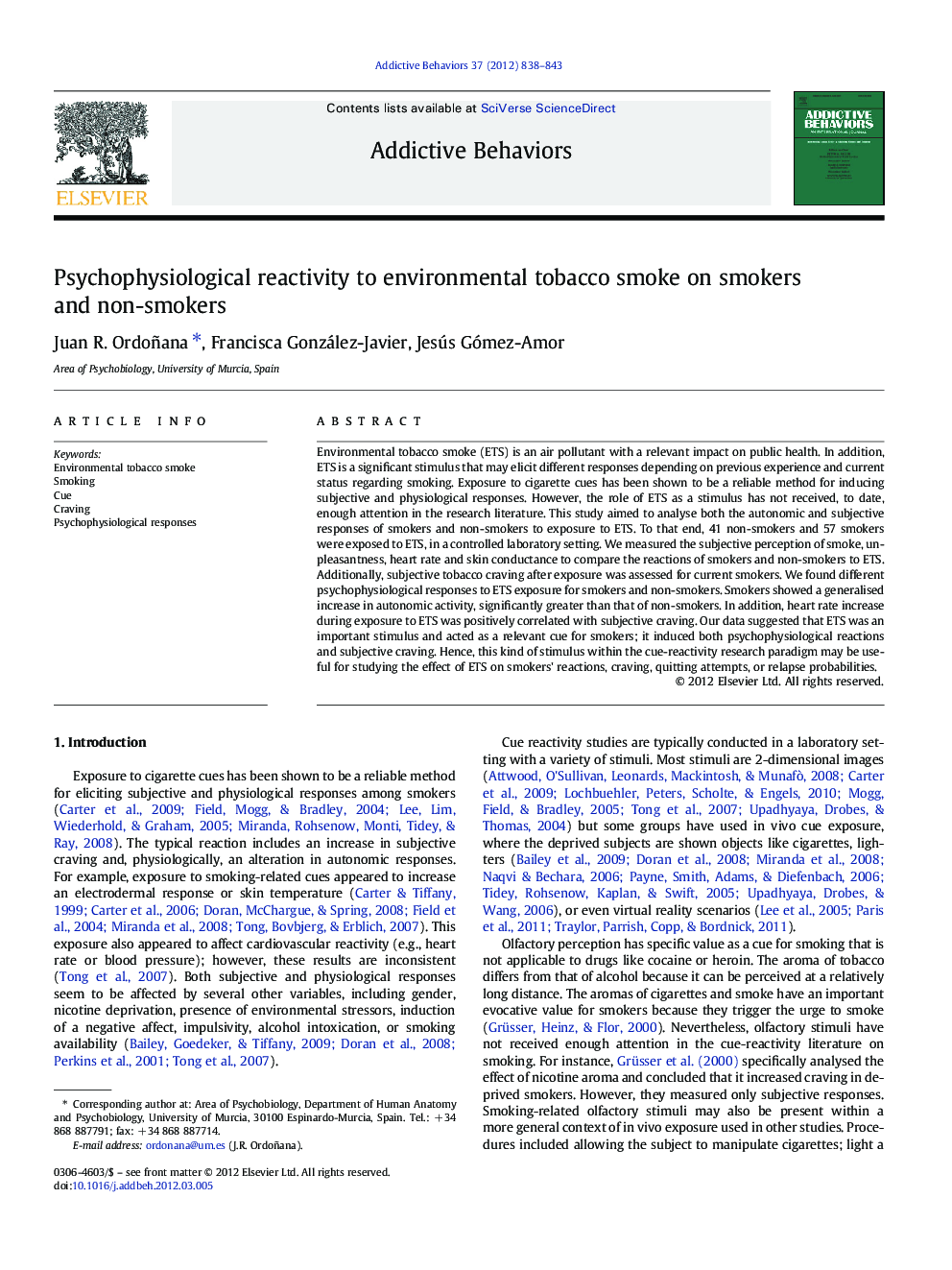| Article ID | Journal | Published Year | Pages | File Type |
|---|---|---|---|---|
| 899370 | Addictive Behaviors | 2012 | 6 Pages |
Environmental tobacco smoke (ETS) is an air pollutant with a relevant impact on public health. In addition, ETS is a significant stimulus that may elicit different responses depending on previous experience and current status regarding smoking. Exposure to cigarette cues has been shown to be a reliable method for inducing subjective and physiological responses. However, the role of ETS as a stimulus has not received, to date, enough attention in the research literature. This study aimed to analyse both the autonomic and subjective responses of smokers and non-smokers to exposure to ETS. To that end, 41 non-smokers and 57 smokers were exposed to ETS, in a controlled laboratory setting. We measured the subjective perception of smoke, unpleasantness, heart rate and skin conductance to compare the reactions of smokers and non-smokers to ETS. Additionally, subjective tobacco craving after exposure was assessed for current smokers. We found different psychophysiological responses to ETS exposure for smokers and non-smokers. Smokers showed a generalised increase in autonomic activity, significantly greater than that of non-smokers. In addition, heart rate increase during exposure to ETS was positively correlated with subjective craving. Our data suggested that ETS was an important stimulus and acted as a relevant cue for smokers; it induced both psychophysiological reactions and subjective craving. Hence, this kind of stimulus within the cue-reactivity research paradigm may be useful for studying the effect of ETS on smokers' reactions, craving, quitting attempts, or relapse probabilities.
► Environmental tobacco smoke (ETS) is a relevant stimulus for smokers and non-smokers. ► Psychophysiological reactivity to ETS is higher for smokers. ► Heart rate response to ETS correlates with subjective craving in smokers. ► Cue reactivity research should consider the analysis of ETS as a cue for smokers.
